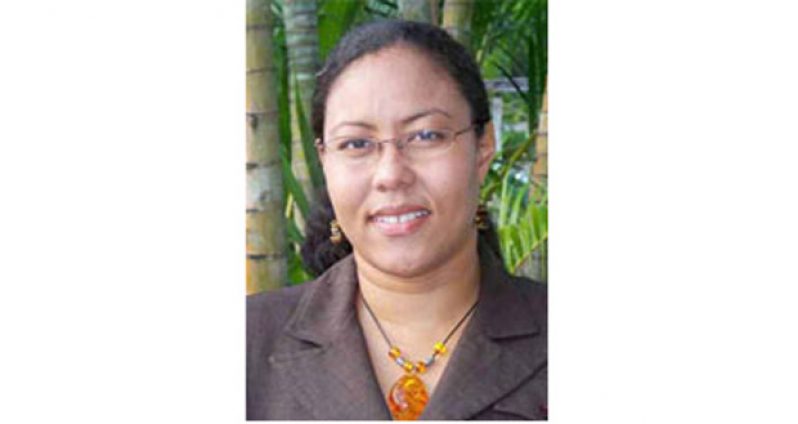— WGE commissioner claims no law against the problem
By Ravin Singh
A PERUSAL of the Labour Act of Guyana, Chapter 98:01 and the Sexual Offences Act Chapter 8:03 would reveal that there are no specific laws which protect against sexual harassment in workplaces, which renders a need for this to be examined. This was the contention of Commissioner Renata Chuck-A-Sang, of the Women and Gender Equality Commission (WGEC), who addressed this issue last week during a “Lunch Talk” hosted by the Society Against Sexual Orientation Discrimination (SASOD) and the Advancing Partners and Communities (APC).
Under the theme, “Pledge for Parity,” discussions were had and Commissioner Chuck-A-Sang related that the vision of the Commission is to create an environment where the rights of women are recognised as human rights and gender equality is realised in Guyana. These, according to her, are goals the commission has been working towards since its establishment in 2003.
According to her, Guyana is guided by some strong laws, including the Domestic Violence Act 1996 and the Sexual Offences Act 2010 which, she thinks are modern, progressive and gender-inclusive.
Despite this however, she expressed the view that “there still is sexual harassment in workplaces and no policy or laws specifically directed at this heinous act perpetrated against all genders, especially women.”
As such, the commissioner made a strong charge for the public to test the legislation and pressure the judiciary to hold the Government accountable.
PREVENTION OF DISCRIMINATION ACT
However, Section 8 of the Prevention of Discrimination Act Chapter 99:09 states that: “Any act of sexual harassment against an employee committed by an employer, managerial employee or co-worker shall constitute unlawful discrimination based on sex within the meaning of section 4 of this Act.”
Section 4 further states that, “A person discriminates against another person if the first mentioned person makes, on any of the grounds mentioned in subsection (2), any distinction, exclusion or preference the intent or effect of which is to nullify or impair equality of opportunity or treatment in any employment or occupation.”
These grounds listed included, inter alia, “race, sex, religion, ethnic origin and colour…”
But while sex was listed as one of the grounds, gender identity was not included in the Act. And according to Chuck-A-Sang, it is unfortunate that people, women especially, who identify as lesbian, bisexual or transgender, do not have any legislative backing.
She further called for the public to be involved in the commission’s work and, by writing, set up appointments with the commissioners and approach the commission on these issues. “Get your voices heard; stand up,” she said.
Meanwhile, Guyana remains the only country in South America where homosexual acts are still illegal.
As such, the issues of gender identity and sexual orientation are not provided for in the Constitution, and this poses significant challenges for this minority group. Under the laws of Guyana also, homosexual acts carry a possible punishment of life imprisonment.



.jpg)









